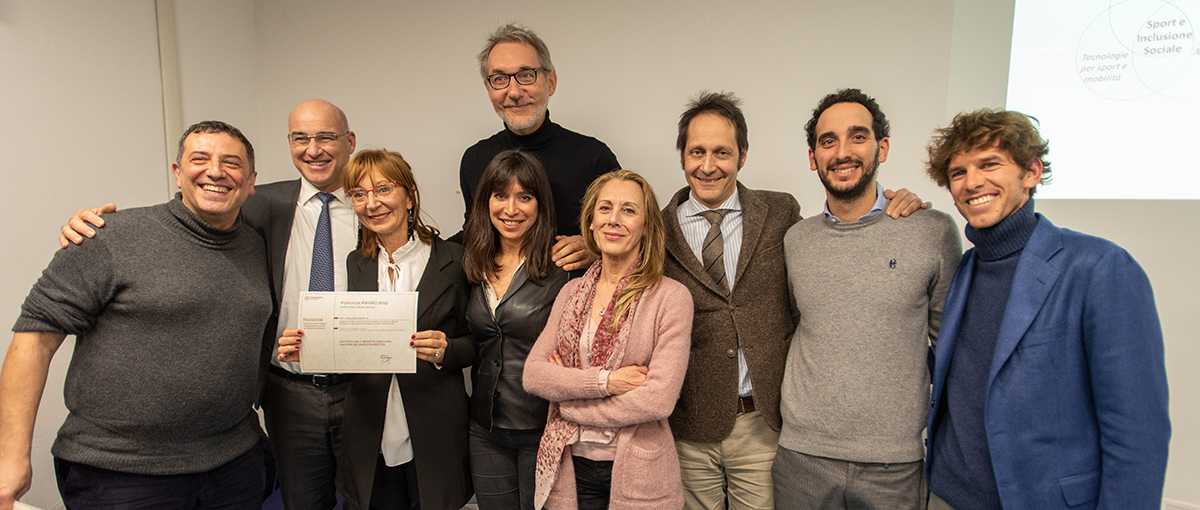dig gift project sport
A G.I.F.T. for children: engineering and social research to ensure that sport really is for everyone

For a child with a motor disability, sport is synonymous with social exclusion and discomfort. This is contrary to the common understanding, namely that sport paves the way for social inclusion. As such, it is an urgent matter to ensure that sport no longer means social exclusion for children with motor disabilities. This is the ambitious goal of the multidisciplinary research project “enGIneering For sporT for all” (GIFT), one of the winners of the Polisocial Award – 2019 Edition, the annual competition promoted by the Politecnico di Milano geared towards social responsibility, whose key topic this year was sport and social inclusion.
The GIFT project will focus on hemiplegic children attending primary school. This, however, is merely the starting point: the intention is, over time and with further funding, to cover most motor and cognitive disabilities so that sport truly can be for everyone.
The project will focus on two areas of research. One will be technological research with a view to developing innovative orthoses which, by correcting the functional deficit of hemiplegic children, will allow them to start to take part in sports. The other component will be social research, involving families, primary school teachers and sports associations so that these children can start to get involved in earnest, reducing the chasm that currently exists between those labelled “abled” and “disabled”.
The research project – lasting 18 months and coordinated by Prof. Manuela Galli from the Department of Electronics, Information and Bioengineering –was the brainchild of the Engineering For Sport (E4Sport) Interdepartmental Laboratory at the Politecnico di Milano, established thanks to the Department of Management, Economics and Industrial Engineering – and it will benefit from the involvement of leading partners including the La Nostra Famiglia Association – IRCCS “Eugenio Medea”, the Catholic University of the Sacred Heart in Milan, ITOP, BTS, Math & Sport, Edumoto, Yuki Onlus and various sports associations.
The Department of Management, Economics and Industrial Engineering will be on the front lines, dealing with the evaluation of the social and economic impact generated by the GIFT project by developing a specific methodology that allows them to measure the “value” generated by sports and sports-related activities. The hope is that this methodology will be applicable to the sports ecosystem as a whole, as well as the various actors therein, e.g. sports associations, amateur clubs, large professional clubs and leagues.
“Understanding how sports and sports-related activities generate value for society and for the economic-productive system is a priority nowadays in the approach of promoting a radical change of perspective, recognising that sports and sports-related activities are not just fun, but rather an important investment – that must be understood and supported – for the wellbeing of society as a whole and its competitiveness over time,” explains Emanuele Lettieri, Full Professor of Accounting, Finance & Control and project manager of the GIFT project, “and it is not surprising that important institutions such as UEFA, FIGC and CONI have launched a number of projects in this vein, considering the measure of the value created by sports and sports-related activities to be a crucial piece of information for developing new policies and initiatives. And the Department of Management, Economics and Industrial Engineering is committed to making its contribution, together with the E4Sport Interdepartmental Laboratory”.





